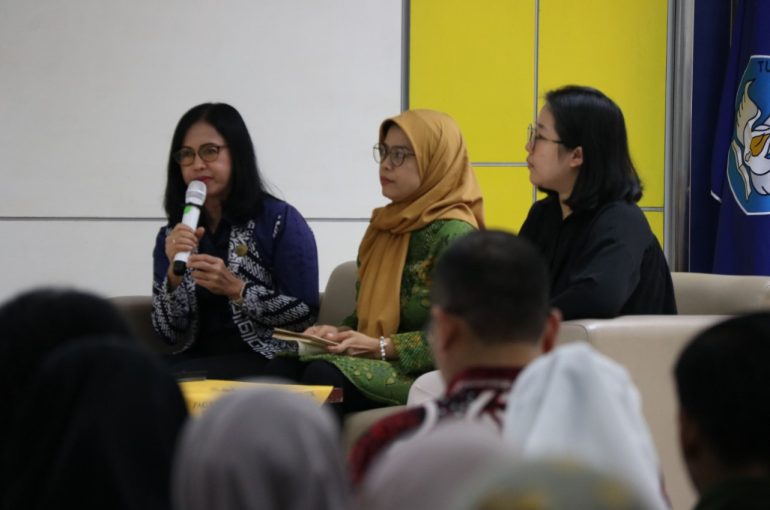
Yogyakarta, August 10th 2023─Ahead of the implementation of the political year, the nomination of candidates has also been carried out. The encouragement of women’s involvement in politics is also increasingly supported by the passing of the Law on Political Parties which requires every political party to include 30% representation of women. The Faculty of Social and Political Sciences UGM again held a discussion entitled “Women and Politics Talkshow: Traces, Roles, and Strategies” to discuss gender equality in political participation on Thursday (10/8).
“Yes. Currently, participation has been fulfilled, as much as 30% in each political party. But the process to achieve this figure, and how women candidates can be elected is another matter. We also see that there are a lot of candidates who have qualified capabilities as political actors,” said Fina Itriyati, M.A., Ph.D, a sociologist and also the Deputy Dean for Research, Community Service, Cooperation, and Alumni.
According to Fina, female political candidates can expand into a wider field if given the opportunity. One of the reasons why women’s involvement is an important issue that deserves attention is the lack of community support for women to pursue a career. This was also agreed upon by a political observer and journalist, Prima Sulya.
“The current environment still doesn’t fully support women to contribute more in politics. BPS data for 2019 states that the formal sector is currently still dominated by 83% men. In fact, according to the data, women’s wages are still somewhat lower than men’s wages, which is equal to 77%,” said Prima.
Dr. err. pol. Mada Sukmajati, M.PP revealed the reasons why women’s participation has not been maximized. “We can’t see only from the female factor, yes. When talking about legislative candidates, the discussion will be even wider. Obviously, the law has provided a guarantee of 30% for each political party. However, it should also be emphasized that this figure includes qualified individuals, not just requirements. When political parties pay more attention to this and open up opportunities for women who have certain qualifications as legislative candidates, I think this will also open up opportunities for greater elections,” he said.
In addition to the involvement of women themselves, the voter factor is also crucial. Legislative candidates, both women and men, must have a good strategy in order to campaign for themselves in front of voters. “The public will also see who can better resolve public issues, regardless of whether the candidate is male or female. I think what needs to be encouraged is public awareness to pay more attention to women legislative candidates,” he added.
The event which was also the launch of “Women’s Political Voice Channel: Yogyakarta Special Region Series” succeeded in opening an interesting discussion related to the issue of women’s political participation. The hope is that gender equality in Indonesian politics will pave the way for development to pay more attention to other vulnerable groups.
